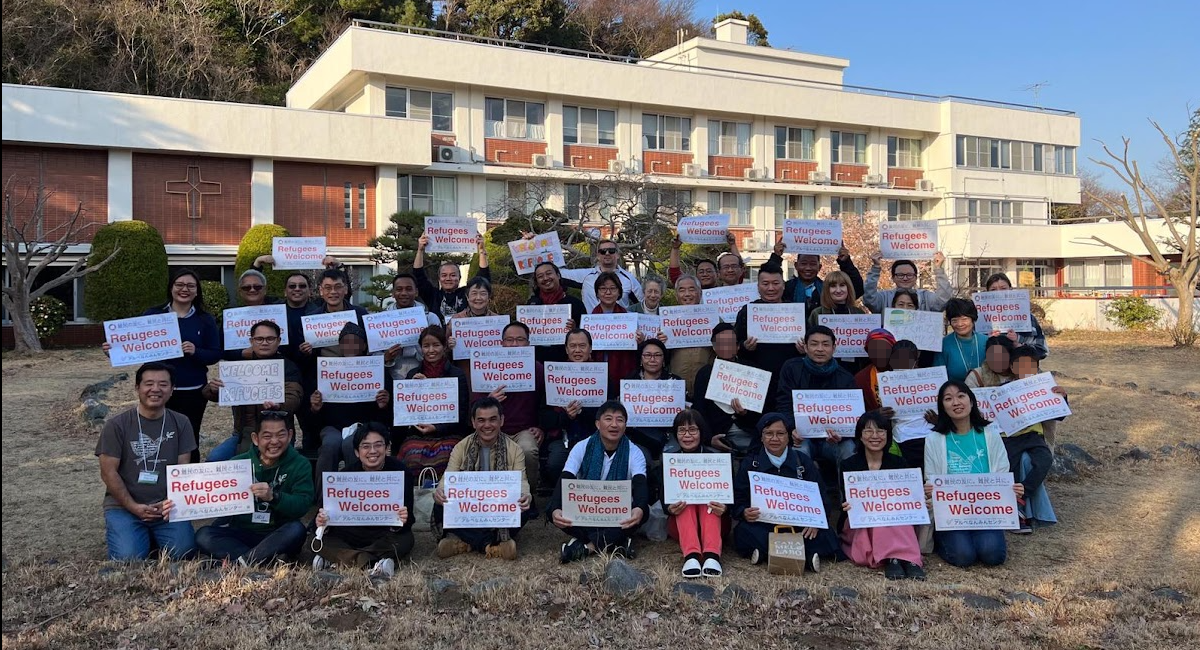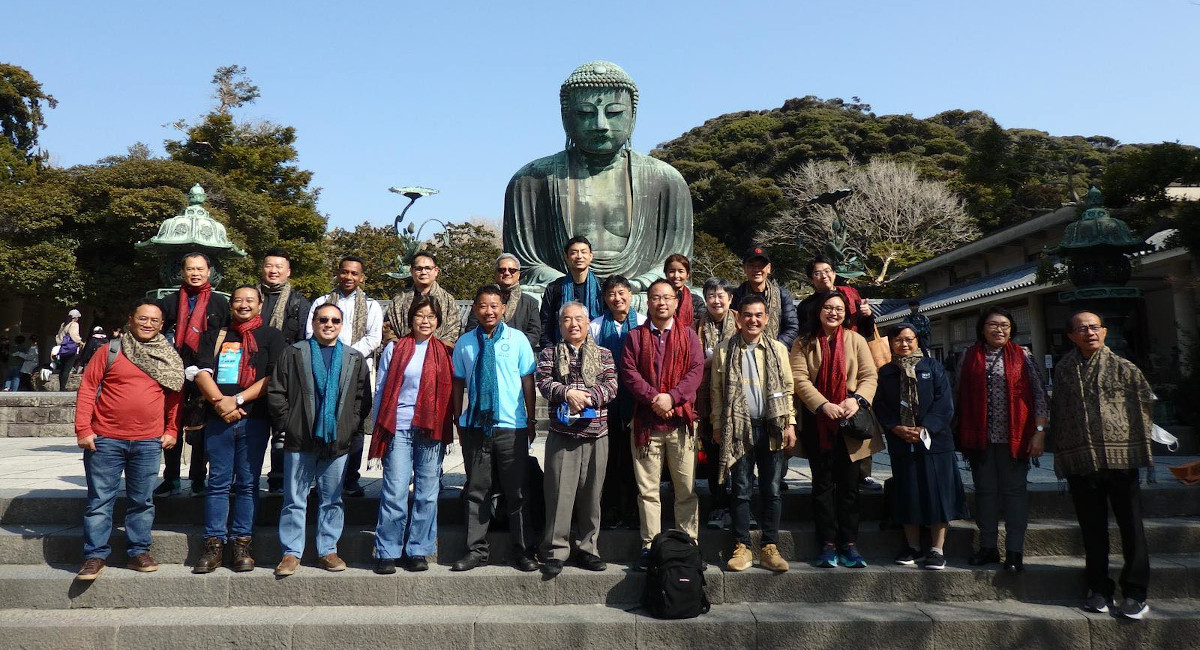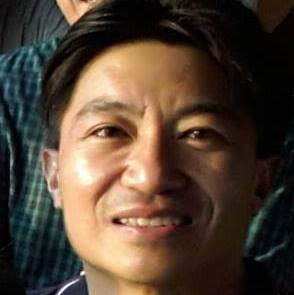
難民の友に, 難民と共に Nan min no tomo ni. Nan min to tomo ni. “Let’s be friends, together with refugees.” This motto of the Arrupe Refugee Centre in Kamakura, Japan encapsulates the vibe and spirit of the Jesuit Conference of Asia Pacific (JCAP) Migrants and Refugees Network’s meeting in Kibe Hall, Tokyo from 6 to 9 March.
Having met online for almost three years during the pandemic under the coordination of Fr Jun Nakai SJ, it was a welcome relief for all to be able to finally meet in person. The 28 participants, representing various Jesuit and Jesuit-affiliated migrants and refugee relief organisations from Australia, Timor-Leste, Indonesia, Malaysia, Thailand, Myanmar, the Philippines, Taiwan, and Korea, joined their Japanese hosts for three days of face-to-face engagement to develop a five-year plan for the network going forward. Also present at the meeting was JCAP President Fr Tony Moreno SJ, Regional Coordinator of East Asia and Southeast Asia of the Dicastery for Promoting Integral Human Development, Naoko Murayama, JRS-Asia Pacific Director Louie Bacomo, and several guest speakers.
In his welcoming address, Japan Provincial Fr Renzo De Luca SJ thanked all participants for their contribution in relieving the hardship faced by migrants, refugees, and internally displaced persons (IDPs). He also recognised their efforts in striving to build a hope-filled future for these communities through relief works, advocacy, and empowerment.
Fr Moreno reiterated the network’s commitment to highlighting the humanitarian crisis in Myanmar that has resulted in innumerable IDPs. The network’s “We Stand with Myanmar” statement released on 4 February recognises the suffering of Myanmar IDPs who courageously stand up for their rights, and the network stands in solidarity with them. He urged the meeting’s participants to keep in mind one of the network’s aims: to promote a culture of hospitality and reconciliation. Fr Moreno emphasised that only with the 3Ps – persistence, patience, and perseverance – will peace and reconciliation be attained.
Julie Edwards, Coordinator of JCAP Social Ministries, joined the meeting online with a message of hope to keep the conversation and concrete actions alive in accompanying migrants, refugees, and IDPs in our midst. Towards this end, Julie also offered training and capacity building opportunities for Jesuits and partners-in-mission.

On the first day of the meeting, the network’s four sub-teams presented proposals for a five-year action plan, each representing the four touchstones of the network: advocacy, capacity building, relief aid, and resource sharing. Yukako Matsuura of the Arrupe Refugee Centre gave a detailed update on the migrant and refugee situation in Japan. Afterwards, two resource persons imparted on the current situation in Myanmar. A Myanmar migrant working in Japan also shared her story.
The second day of the meeting devoted time for a field trip to Arrupe Refugee Centre in Kamakura. En route, the participants visited several Buddhist temples before arriving at Myoin shrine for lunch. Rev Shoukou Nakada, the resident abbot, gave a short but informative sharing on the importance of interreligious dialogue, highlighting the similarities between Buddhist and Catholic rites. He stressed the importance of mutual respect and understanding to achieve peace and harmony.
At Arrupe Refugee Centre, the participants watched a video presentation featuring the testimonies from the centre’s residents, highlighting the challenges and experiences faced by refugees in Japan. After the presentation, they enjoyed a lovely outdoor afternoon tea while interacting with the resident-refugees from Ukraine, Congo, Nigeria, and Myanmar. It is through these life-narratives that one gets an idea of the complexity of the refugee situation in Japan, but what inspired listeners was the gratitude each expressed to the people who reached out to them and the hope they have despite the uncertainties that lie ahead.
On the final day of the meeting, an IDP from Myanmar shared her story. Her appeal for action complemented the focus of the meeting: finalising and ratifying the five-year action plans of the four sub-teams of the network. The meeting concluded with a thanksgiving Mass celebrated by Fr Nakai before everyone proceeded to a closing dinner hosted by Fr De Luca at a restaurant off campus.
The meeting may have ended but the work begins. Strengthened by the three days of face-to-face engagement and a novel cultural snack sharing experience, a tradition that is common in many Asian cultures, the participants returned home with a prayer and the vision of a hope-filled future for migrants, refugees, and IDPs in their midst.

Fr Alvin Ng SJ from Malaysia serves in the Migrant Ministry of the Archdiocese of Kuching. He is also the Delegate for Social Ministries and Care for Our Common Home of the Malaysia-Singapore Jesuit Region.

